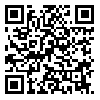Volume 18, Issue 4 (10-2014)
IBJ 2014, 18(4): 232-238 |
Back to browse issues page
Download citation:
BibTeX | RIS | EndNote | Medlars | ProCite | Reference Manager | RefWorks
Send citation to:



BibTeX | RIS | EndNote | Medlars | ProCite | Reference Manager | RefWorks
Send citation to:
Panahpour H, Nekooeian A A, Dehghani G A. Candesartan Attenuates Ischemic Brain Edema and Protects the Blood–Brain Barrier Integrity from Ischemia/Reperfusion Injury in Rats. IBJ 2014; 18 (4) :232-238
URL: http://ibj.pasteur.ac.ir/article-1-1168-en.html
URL: http://ibj.pasteur.ac.ir/article-1-1168-en.html
Abstract:
Background: Angiotensin II (Ang II) has an important role on cerebral microcirculation however, its direct roles in terms of ischemic brain edema need to be clarified. This study evaluated the role of central Ang II by using candesartan, as an AT1 receptor blocker, in the brain edema formation and blood-brain barrier (BBB) disruption caused by ischemia/reperfusion (I/R) injuries in rat. Methods: Rats were exposed to 60-min middle cerebral artery (MCA) occlusion. Vehicle and non-hypotensive doses of candesartan (0.1 mg/kg) were administered one hour before ischemia. Neurological dysfunction scoring was evaluated following 24 h of reperfusion. Animals were then decapitated under deep anesthesia for the assessments of cerebral infarct size, edema formation, and BBB permeability. Results: The outcomes of 24 h reperfusion after 60-min MCA occlusion were severe neurological disability, massive BBB disruption (Evans blue extravasation = 12.5 ± 1.94 µg/g tissue), 4.02% edema, and cerebral infarction (317 ± 21 mm3). Candesartan at a dose of 0.1 mg/kg, without changing arterial blood pressure, improved neurological dysfunction scoring together with significant reductions in BBB disruption (54.9%), edema (59.2%), and cerebral infarction (54.9%). Conclusions: Inactivation of central AT1 receptors, if not accompanied with arterial hypotension, protected cerebral micro-vasculatures from damaging effects of acute stroke.
Type of Study: Full Length/Original Article |
Subject:
Related Fields
| Rights and permissions | |
 |
This work is licensed under a Creative Commons Attribution-NonCommercial 4.0 International License. |









.png)
